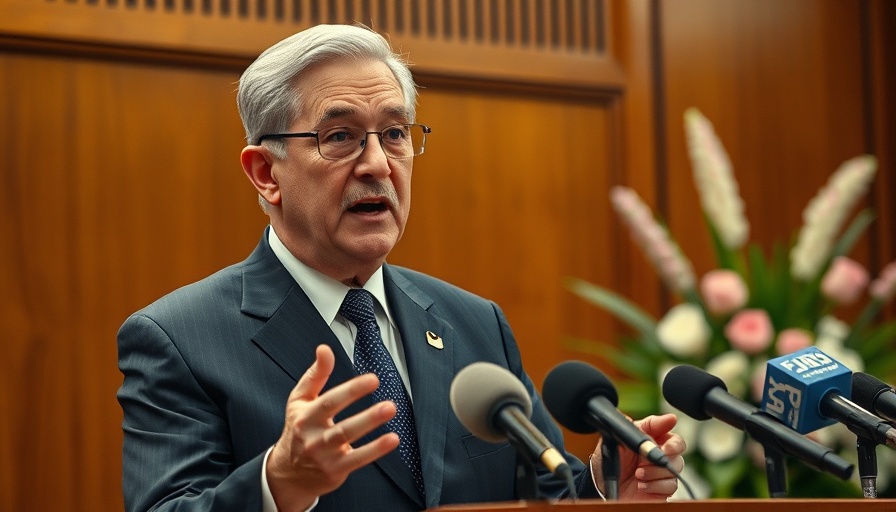
Understanding Mark Bristow's Influence in Africa's Mining Sector
Mark Bristow, the CEO of Barrick Gold, has been a significant force in Africa’s mining landscape since the 1990s. Known for his deep connections and strategic acumen, Bristow is anticipated to begin transitioning leadership by 2028, hinting at a carefully orchestrated succession plan that will keep Barrick at the forefront of the gold mining industry. Given the current tensions involving Barrick's operations in Mali, these leadership dynamics are particularly crucial.
The Duality of Mining Relationships: Opportunities and Challenges
Bristow's ongoing interactions with the military junta in Mali illustrate the precarious balance mining companies must strike between operational integrity and geopolitical realities. The military's increased scrutiny of foreign business practices presents both challenges and opportunities for Barrick. It serves as an arena for Mark to evaluate his lieutenants amidst the evolving relationship with Bamako.
Evolving Mining Landscape in Tanzania: A Case Study
The tensions in Mali are mirrored by Barrick's bid to rejuvenate its standing in Tanzania, where it once faced a challenging tax environment. Following a careful negotiation process, positive engagement signals from the Tanzanian authorities indicate that Barrick may be regaining its footing there. This dual approach reflects a broader trend in the mining sector, where adaptability and local relationships are paramount to success.
Emphasis on Local Governance and Its Implications
As Bristow navigates these turbulent waters, it raises broader questions about governance and the impact of foreign investments on local economies. How are companies like Barrick redefining their strategies in response to local political climates? The emphasis on local governance and equitable revenue sharing can hold the key to sustainable development, moving beyond mere profit generation.
The Pan-African Influence: Bridging Economic and Diplomatic Gaps
Bristow's actions reflect a growing awareness of the Pan-African ethos, emphasizing that foreign entities must engage with African governance structures respectfully. The future of mining in Africa is not merely about extracting minerals but involves a deeper engagement with communities and their needs. Economic growth, alongside a focus on human rights and democracy, is essential for fostering a stable investment climate.
Future Prospects: Outlook for the African Mining Sector
With the essence of decolonization and Afrocentrism gaining traction, companies must consider the nuanced pressures of public sentiment. Mining firms cannot afford to operate in silos; the public is increasingly aware and critical of corporate actions affecting local environments and socioeconomic conditions. The trend towards local empowerment, youth engagement, and innovative approaches illustrates a shift that could redefine the landscape in the years to come.
Call to Action: Engage with Africa's Mining Narrative
In light of these developments, it's vital for professionals in various sectors - from mining and governance to education and technology - to engage with Africa's mining narrative. This engagement goes beyond economic interests; it involves understanding cultural heritage, supporting local communities, and fostering sustainable practices. By contributing to a transparent discourse around mining, you can play a part in shaping a future that respects Africa's unique context and promotes genuine development.
 Add Row
Add Row  Add
Add 




Write A Comment